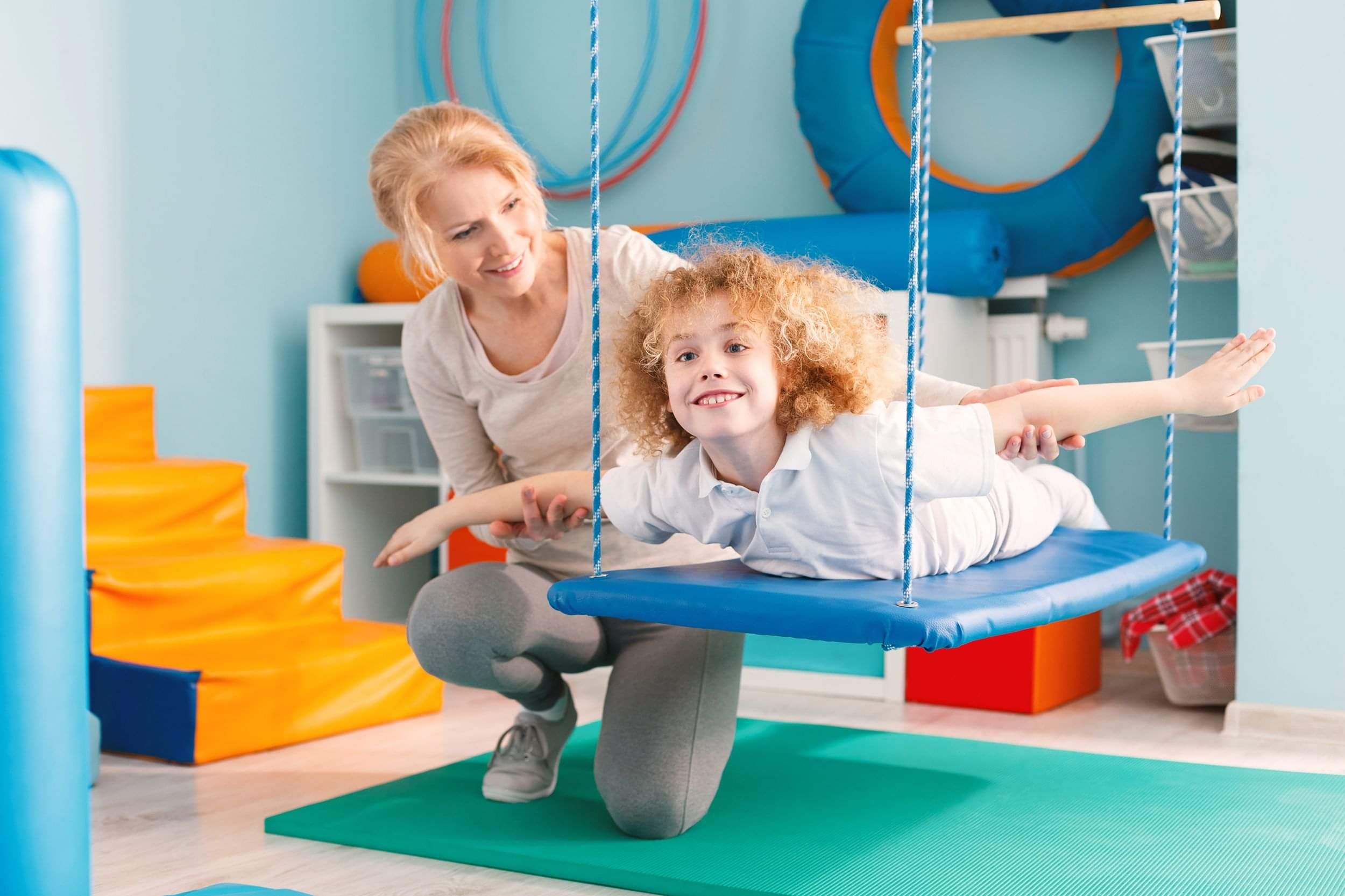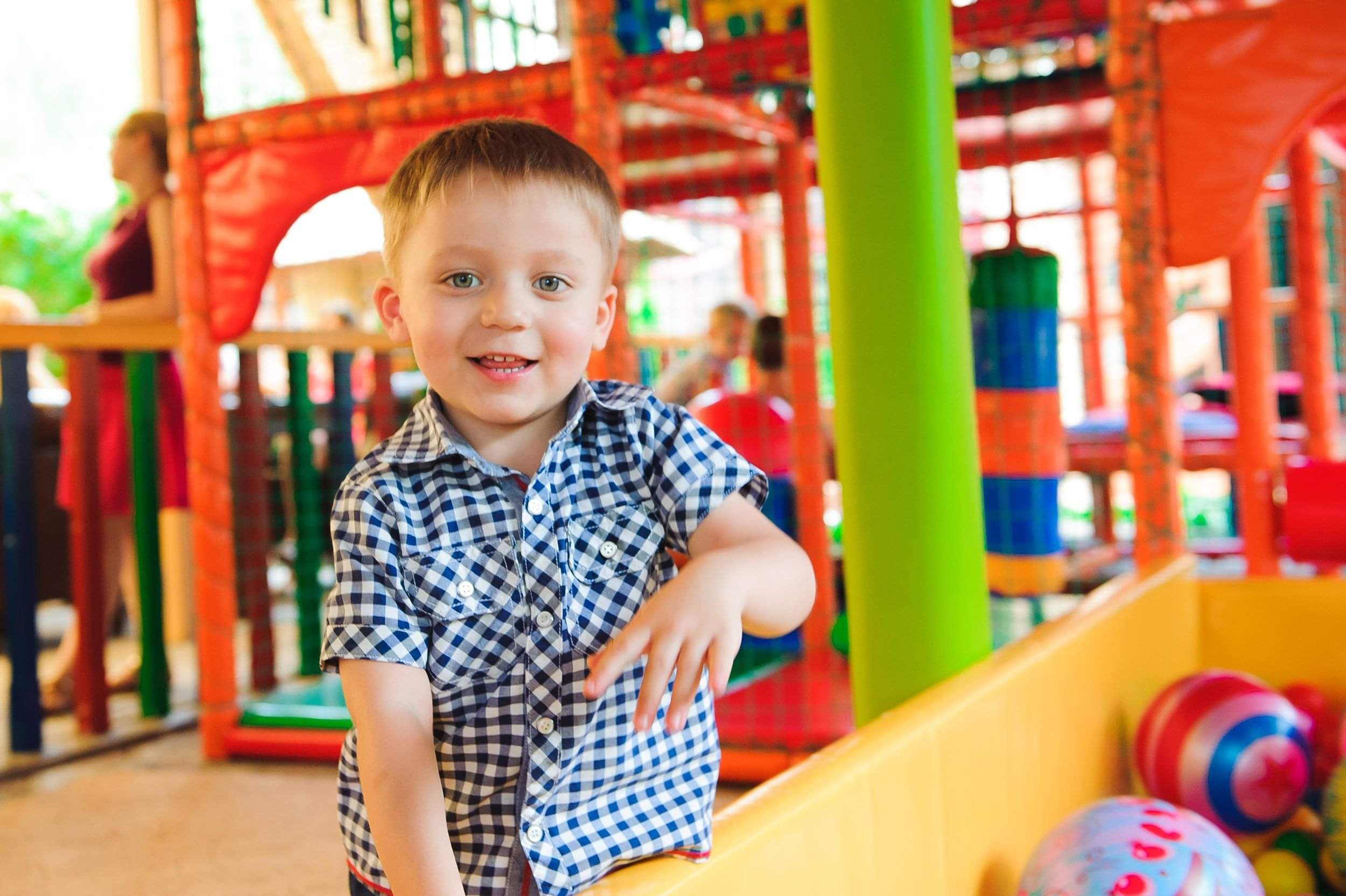How Can We Help Your Child?
Developmental stages are usually reached alongside chronological age. However, some children experience difficulties with foundation sensory processing and movement / co-ordination development, which can result in difficulty 'keeping up' with peers or achieving in different areas of their lives such as academically, socially, and athletically.
As a parent or guardian, you may recognise these difficulties as they can affect readiness for learning, the ability to focus and engage in the learning process, the ability to keep up with peers in the play-ground, self-esteem and confidence.

OT4YOU provides Sensory Assessment and Interventions for children who experience Sensory Processing Disorders.
How do you know when your child has a Sensory Processing difficulty?
Children with Sensory Processing disorders may experience:
OVERLY SENSITIVE TO TOUCH, MOVEMENT, SIGHTS, SMELLS, TASTES AND SOUNDS
This may be manifested in behaviours such as irritability or withdrawal when touched, avoidance of certain textures of clothes or food, easily distracted as well as fearful reactions to ordinary movement activities such as swinging and spinning.
UNDER-REACTIVE TO SENSORY STIMULATION
An under responsive child may seek out sensory experiences such as whirling in circles or crashing into people and objects. Children may seem oblivious to pain or to body position. Some children fluctuate between extremes of over and under responsiveness.
ACTIVITY LEVELS THAT ARE UNUSUALLY HIGH OR LOW
Children may be constantly on the move or the opposite, very slow to warm up and fatigue easily and again, may fluctuate between extremes
COORDINATION PROBLEMS
Some children may have unusually poor balance, while others have great difficulty learning to do a new task that requires motor coordination, which can be seen in gross and fine motor activities.
POOR SELF-CONCEPT
Often a child with sensory processing difficulties ‘does not quite feel right.’ A bright child may know that some tasks are more difficult than others but may not know why. This can sometimes come across as bored, lazy or unmotivated, with children developing strategies to avoid tasks that are hard or embarrassing. When this happens, the child may be considered troublesome or stubborn, prior to addressing the real problem at hand.
POOR ORGANISATION OF BEHAVIOUR
Some children may be impulsive or distractible and show a lack of planning in approach to tasks. They may have difficulty adjusting to new situations, others may react to circumstances with frustration, aggression, or withdrawal when they encounter failure.
DELAYS IN SPEECH, LANGUAGE, MOTOR SKILLS, OR ACADEMIC ACHIEVEMENT
These may be evident in a pre-schooler along with other signs of poor sensory integration. In a school-aged child, there may be problems in some academic areas despite normal intelligence.
Our Occupational Therapist will identify through a Sensory Assessment whether your child needs extra assistance, and what type of assistance would suit them best. They will then liaise with other professionals such as physiotherapist, psychologists, your child's school, and SENCO (Special Educational Needs Coordinator), to determine how to best support the needs of your child and assist with ongoing treatment options for your child’s continued development.
We provide 1-1 support for children in our OT4YOU sensory integration gym. Interventions are designed based on your child's sensory assessment results. 1-1 sessions are approximately 45 minutes/session with an OT in our gym.



How do I know my child may need an occupational therapist?
If you've noticed your child has difficulties with any of these, get in touch. OT4YOU provides assessments to help identify if your child may need a bit of extra assistance to reach their milestones and keep up with their peers.
Balance
Sensory integration and sensory processing difficulties
Clumsiness and difficulty with sports activities
Visual processing
Difficulty with fine motor skills such as using scissors, handwriting and age appropriate play
Fine motor difficulties
Listening & remembering instructions
Touch sensation, loud noises, balance, food textures
Learning - attention & organisation
Social - self-regulation, play & self -organisation
Emotional - self-esteem, confidence
Easily overwhelmed, over-stimulated, difficulty with age-appropriate self-regulation for learning
Difficulty with reading, writing
Focus for engaging in academic learning
Is bright but behind expected levels for school
Is verbally able to express themselves, but has difficulty with written work
Having trouble putting ideas on paper
Occupational Therapy Assessments provided by OT4YOU:
EASI Ayres sensory integration assessment
ABC Movement - Balance, Gross and fine motor assessment
VMI - Visual Motor Integration Assessment
SPM - Sensory Processing Measure at home and School
Want More Information?
We walk alongside our clients to help give them the support they need. With us you don't need to feel like you're battling it alone - OT4YOU is here to help.

